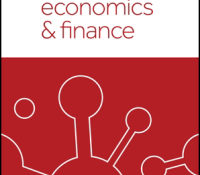
tandfonline.com har udgivet en rapport under søgningen “Teacher Education Mathematics”: ABSTRACT ABSTRACT Teachers’ motivation to participate in professional learning is a significant factor in explaining the effectiveness of continuous professional development programmes. The present study investigated how factors at teachers’ personal and school levels are related to their motivation to participate in professional learning activities. A questionnaire was completed by 472 Chinese teachers. Multivariate analysis revealed that several factors at the teacher level (teachers’ prior experience with learning activities, teaching experience, self-efficacy and conceptions of learning) and the school level (work and emotional pressure, colleague support and principal leadership) were related to their motivation to participate in professional learning. These findings are discussed in the context of the professional development of Chinese teachers. Implications are generated for teacher education and… Continue Reading →
Like this:
Like Loading...
eric.ed.gov har udgivet: California’s shift towards continuous improvement in education makes understanding how districts and schools can learn to improve a more pressing question than ever. The CORE Improvement Community (CIC), a network of California school districts engaged in learning about improvement together, is an important testing ground to learn about what this work entails. This report continues drawing lessons from the CIC’s second year as its districts work together towards a common aim: to improve the mathematics achievement of African American and Latinx students in Grades 4-8. The CIC applies a specific continuous improvement approach, called improvement science, to support teams in reaching the aim. Improvement science, unlike many approaches to reform, is not a specific “program” designed to fix educators’ performance in a particular aspect of their work… Continue Reading →
Like this:
Like Loading...
tandfonline.com har udgivet en rapport under søgningen “Teacher Education Mathematics”: Abstract Formulae display:?Mathematical formulae have been encoded as MathML and are displayed in this HTML version using MathJax in order to improve their display. Uncheck the box to turn MathJax off. This feature requires Javascript. Click on a formula to zoom. Abstract Tax derives from subjects’ earnings measured in monetary terms, a principle anchored in financial accounting. The canon of equity, especially the vertical form, sometimes referred to as “ability to pay” remains monetary. However, negating conventional horizontal equity, equal taxable incomes often require employment of different economic rationality levels to earn them depending on the profession or sector the tax payer comes from; hence different cognitive energies are required to generate the same taxable income—disapproving the mere “ability to… Continue Reading →
Like this:
Like Loading...
eric.ed.gov har udgivet: Schools in 47 high-poverty school districts located mostly along the Atlantic Coast of North Carolina, South Carolina, and Virginia may have a head start on new requirements of the No Child Left Behind (NCLB) Act of 2001, thanks to a $6 million grant from the National Science Foundation. Begun in April 2000, the five-year Coastal Rural Systemic Initiative (CRSI) is striving to stimulate sustainable systemic improvements in science and mathematics education in school districts with a long history of low student expectations, persistent poverty, low teacher pay, and high administrator turnover. The CRSI capacity-building model is designed to address issues in rural school districts that traditionally limit the capacity for creating sustainable improvements in math and science programs. A critical action step is that each school district… Continue Reading →
Like this:
Like Loading...

